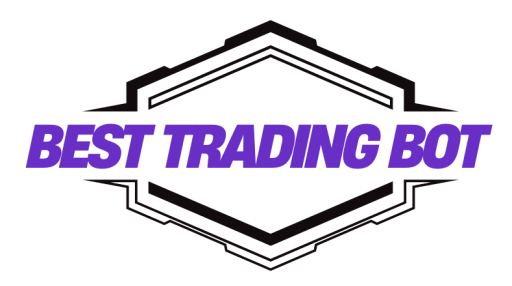The landscape of decentralized finance (DeFi) and web3 is rapidly evolving, with Solana emerging as a formidable contender for high-throughput, low-cost applications. Its innovative architecture offers a unique environment for developers looking to build scalable and efficient dApps. This comprehensive guide delves into the nuances of writing smart contracts on Solana, providing you with the knowledge and tools necessary to leverage this powerful blockchain. Whether you are a seasoned blockchain developer or new to the ecosystem, understanding Solana’s approach to smart contract development is crucial for creating next-generation decentralized solutions.
Contents
Understanding Solana’s Smart Contract Architecture

Understanding Solana’s Program and Account Model
Solana’s smart contract architecture fundamentally shifts from traditional EVM chains. Programs, or smart contracts, are stateless and contain only executable logic. Data is stored separately in accounts, passed into programs for manipulation. This design enables unparalleled transaction processing speed and significantly lower fees, critical for high-throughput decentralized applications.
Rust and BPF for Solana Programs
Developers writing smart contracts on Solana primarily use Rust, compiled into Berkeley Packet Filter (BPF) bytecode. Rust’s performance, memory safety, and robust concurrency features make it ideal for Solana program development. The BPF compilation ensures highly optimized execution within the Solana runtime, maximizing efficiency and minimizing resource consumption. This combination delivers a powerful, secure foundation.
Leveraging the Solana Program Library
The Solana Program Library (SPL) offers a suite of pre-built, on-chain programs developed by Solana Labs. These include essential functionalities like the SPL Token standard, staking mechanisms, and name services. Integrating SPL components streamlines development, allowing teams to focus on unique application logic rather than reinventing common primitives. Understanding Solana terminology is crucial for effectively utilizing these powerful tools.
Setting Up Your Solana Development Environment

Essential Solana Smart Contract Development Setup
A robust development environment is paramount for writing smart contracts on Solana. This setup facilitates efficient coding, testing, and deployment. Key tools include Rust for programming, Cargo for package management, and the Solana Command Line Interface (CLI) for blockchain interaction. The Anchor framework further streamlines development, offering a structured approach.
Key Installations for Solana Programs
- Rust and Cargo: Install
rustupto manage Rust versions and Cargo, the build system. This is fundamental for Solana program compilation. - Solana CLI: The Solana CLI enables direct blockchain interaction. Use it for deploying programs, managing keys, and querying data. Always install the latest official version.
- Anchor Framework: Anchor simplifies Solana program development through powerful abstractions. It requires Node.js and Yarn/npm for client-side tooling, providing a structured, opinionated workflow.
- Integrated Development Environment: VS Code with Rust Analyzer is highly recommended. It offers syntax highlighting, auto-completion, and debugging, optimizing your efficiency when writing smart contracts on Solana.
Building Your First Solana Smart Contract with Anchor

Building Solana Smart Contracts with Anchor
Anchor significantly streamlines the process of writing smart contracts on Solana. It abstracts away many low-level blockchain interactions, allowing developers to concentrate on core application logic. This framework provides a structured, efficient pathway from concept to deployment, making Solana development more accessible.
Steps for Your First Anchor Program
- Initialize Project: Begin with
anchor init my-first-program. This command sets up a standard project structure, including dedicated directories for your Rust program code and JavaScript/TypeScript tests. - Define Program Logic: Edit the
lib.rsfile. Anchor uses specific attributes to define program entry points, manage accounts, and handle instruction data. A typical program might include instructions to initialize or modify data within an account. - Write Comprehensive Tests: Anchor projects include a robust testing framework. Develop unit and integration tests using TypeScript or JavaScript to rigorously verify your program’s functionality and security. This step is critical for robust decentralized applications.
- Build and Deploy: Compile your program using
anchor build. Subsequently, deploy it to a Solana cluster (local, devnet, or mainnet) withanchor deploy. The generated program ID is essential for client-side applications to interact with your contract. Learning how to build your own AI agent can enhance interaction with deployed contracts.
Best Practices and Advanced Solana Development Concepts
Optimizing Solana Smart Contract Development
Moving beyond basic implementations, adopting advanced best practices is critical for writing smart contracts on Solana that are secure, efficient, and maintainable. Solana’s unique architecture offers powerful features, but leveraging them effectively requires careful consideration of design and deployment strategies.
Advanced Concepts and Best Practices
- Security Audits and Testing: Rigorous testing is non-negotiable. Beyond standard unit tests, incorporate fuzzing, formal verification, and professional security audits. Always prioritize secure coding patterns, especially when handling native tokens or sensitive data.
- Account Management and Data Structures: Design accounts meticulously. Minimize on-chain data storage to reduce costs. Utilize Program Derived Addresses (PDAs) for secure program ownership without private keys. Proper account space allocation ensures future expandability and cost efficiency.
- Upgradeability and Versioning: Plan for program upgrades from the outset. Solana supports program upgrades, but this process demands precision to prevent breaking existing applications or introducing vulnerabilities. Implement clear versioning for compatibility management.
- Cross-Program Invocations (CPI): Master CPIs to enable your program to call instructions from other on-chain programs, including those within the Solana Program Library (SPL). This facilitates complex interactions and seamless integration with the broader ecosystem.
- Front-End Integration: Effectively connect your decentralized application by using Solana’s JavaScript SDK (
@solana/web3.js) or Anchor’s client library. These tools manage wallet connections, transaction signing, and data fetching for a smooth user experience.
Mastering smart contract development on Solana opens doors to building highly performant and scalable decentralized applications. By embracing its unique architecture, leveraging powerful tools like Anchor, and adhering to best practices, developers can contribute to the next wave of innovation in the blockchain space. The journey of crafting secure and efficient Solana programs is both challenging and rewarding, positioning you at the forefront of the Web3 revolution.
Explore more resources and opportunities for advanced trading strategies and blockchain development at Best Trading Bot .
